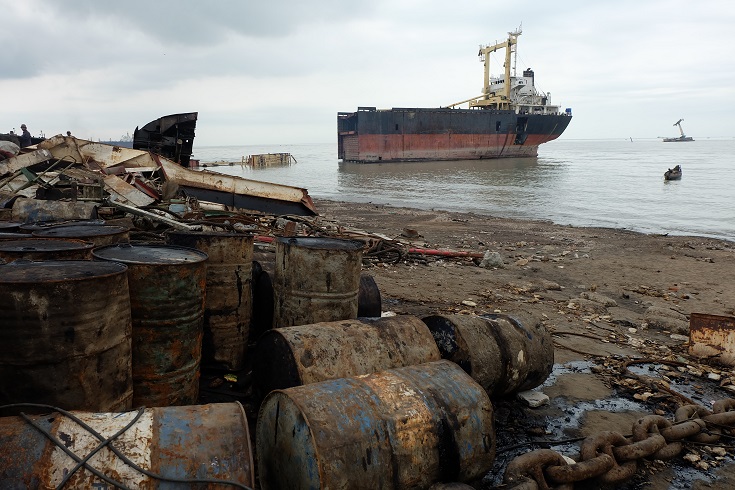NGO Shipbreaking Platform, a coalition campaigning for clean and safe ship recycling, has joined K’ómoks First Nation (KFN) and the local residents in calling on the authorities to look into scrapping operations at Union Bay.
On 11 January, NGO Shipbreaking Platform sent an official letter of concern to all Canadian competent bodies stating the support to the affected communities that first raised concerns regarding scrapping operations at Union Bay eighteen months ago.
As disclosed, KFN and the coalition are calling upon the federal, provincial and regional authorities to make sure that the activities carried out by the operator, Deep Water Recovery (DWR), cease to cause harm to both local communities and the surrounding environment.
In December 2020, DWR converted a former log-sort location in an improvised shipbreaking yard to pull apart barges.
According to NGO, the shipbreaking activities are in violation of district zoning bylaws, and, to date, the Comox Valley Regional District is still allowing for hazardous operations to take place only a few metres away from several residential houses and within an ecologically and biologically significant area (EBSA).
The foreign management of DWR stated that very stringent environmental plans are in place. However, BGO claims that drone footage and photos of the site show vessels taken apart without impermeable flooring and drainage systems in place.
The coalition added that no environmental impact assessment or public consultation prior to the dismantling activities having started was conducted.
“We do not consider that the landing of vessels onto shores that are unable to contain the many hazardous materials onboard and embedded within the ships’ structures, as currently happening at Union Bay, is a sustainable or acceptable way of recycling ships”, says Nicola Mulinaris, senior communication and policy advisor at the NGO Shipbreaking Platform.
At the moment, the two former US Government vessels and a BC Ferries Corporation’s passenger ship are moored at Union Bay, possibly waiting to be scrapped. Given their age and type, the ships are likely to contain high amounts of toxic substances in their structures, including asbestos and PCBs, NGO said.
“Vessels can only be recycled in a safe and environmentally sound manner at proper industrial sites that ensure a contained environment with impermeable flooring and drainage systems. We, therefore, urge Canadian authorities to halt immediately the breaking of ships at Union Bay and take an example from the existing EU legislation on ship recycling. We also call upon BC Ferries to opt for a sustainable option for its end-of-life Queen of Burnaby, as well as its other remaining older units”, Mulinaris concludes.
Source: Offshore Energy





